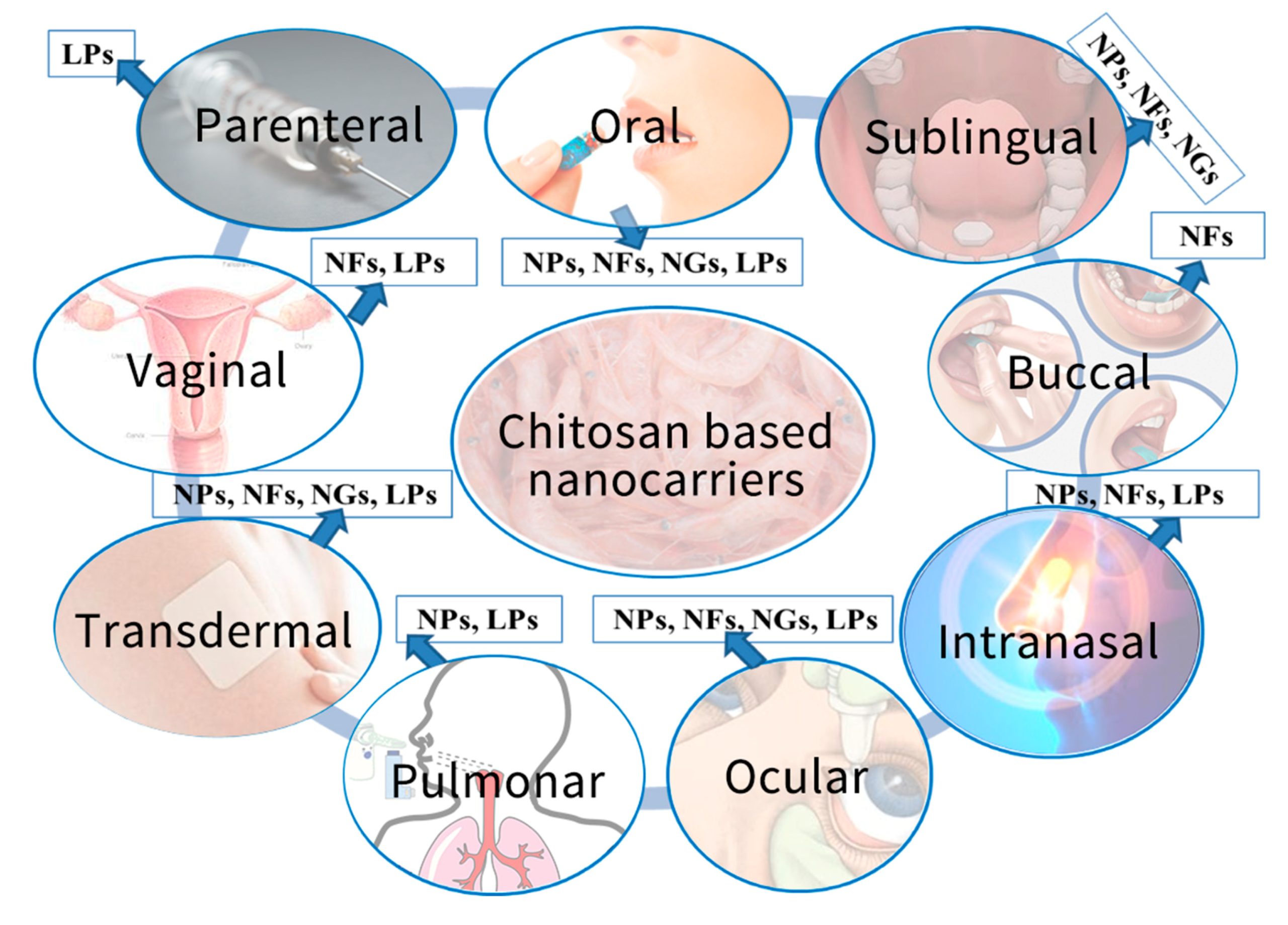Recent Biomedical Approaches for Chitosan Based Materials as Drug Delivery Nanocarriers

In recent decades, drug delivery systems (DDSs) based on nanotechnology have been attracting substantial interest in the pharmaceutical field, especially those developed based on natural polymers such as chitosan, cellulose, starch, collagen, gelatin, alginate and elastin. Nanomaterials based on chitosan (CS) or chitosan derivatives are broadly investigated as promising nanocarriers due to their biodegradability, good biocompatibility, non-toxicity, low immunogenicity, great versatility and beneficial biological effects. CS, either alone or as composites, are suitable substrates in the fabrication of different types of products like hydrogels, membranes, beads, porous foams, nanoparticles, in-situ gel, microparticles, sponges and nanofibers/scaffolds. Currently, the CS based nanocarriers are intensely studied as controlled and targeted drug release systems for different drugs (anti-inflammatory, antibiotic, anticancer etc.) as well as for proteins/peptides, growth factors, vaccines, small DNA (DNAs) and short interfering RNA (siRNA). This review targets the latest biomedical approaches for CS based nanocarriers such as nanoparticles (NPs) nanofibers (NFs), nanogels (NGs) and chitosan coated liposomes (LPs) and their potential applications for medical and pharmaceutical fields. The advantages and challenges of reviewed CS based nanocarriers for different routes of administration (oral, transmucosal, pulmonary and transdermal) with reference to classical formulations are also emphasized.
The development of polymeric drug delivery systems (DDSs) using the latest nano-technology approaches had gained scientists’ attention in the pharmaceutical field, the most used polymers being those of natural origin such as chitosan, starch, cellulose, gelatin, elastin and alginate [1]. The end of the 1970s coincides with the first research targeting polymeric drug DDSs, when the development of polymethacrylate-based NPs was carried out in order to increase the immunogenicity of antigens [2]. The high interest in natural polymers is supported by several advantages of this type of polymers such as biodegradability, biocompatibility, inexpensiveness, easy availability and biological effects [3]. The polymeric drug carriers used in DDSs have an important role in preventing the degradation of drugs, improving the drugs’ pharmacokinetic and pharmacodynamics profile, increasing the degree of absorption and penetration at specific target tissues.
Download the full article as PDF here: Recent Biomedical Approaches for Chitosan Based Materials as Drug Delivery Nanocarriers
or read it here
Iacob, A.T.; Lupascu, F.G.; Apotrosoaei, M.; Vasincu, I.M.; Tauser, R.G.; Lupascu, D.; Giusca, S.E.; Caruntu, I.-D.; Profire, L. Recent Biomedical Approaches for Chitosan Based Materials as Drug Delivery Nanocarriers. Pharmaceutics 2021, 13, 587. https://doi.org/10.3390/pharmaceutics13040587

